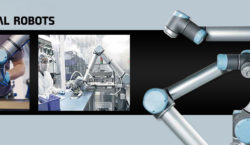Shermine Gotfredsen is a Singaporean who moved to Denmark after getting married to a Dane, learned the language and its business culture – and was then tasked to represent that back in Singapore!
“You marry a Dane, and you move there and you start all your life from the beginning again, because you have to learn the language, have to try to get into the job market, which very much depends if you have an education in Denmark and the language skills – the whole integration part of it,” begins Shermine.
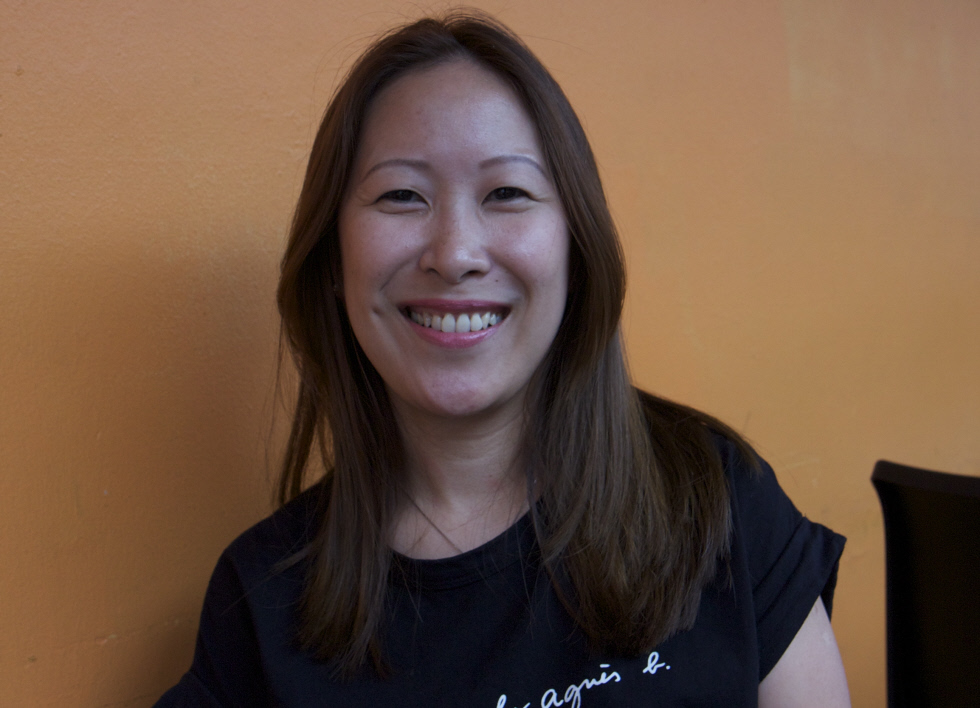
She has apparently done well in this regard, because she was later offered to set up, for her former Danish employer, a robotics company’s subsidiary in Singapore, which meant moving back to Singapore.
However, the family is just back in Denmark again since late 2018, as she continues to build her career, based on a mix of Asian and Danish business cultures.
Becoming integrated into the local culture is essential if moving to Denmark, according to Shermine. In fact, its integration regulation for foreigners is limited to three years. And learning Danish is free – for a limited period of time.
“So I was attending school the first year full time, studying everything in Danish. But the teachers are very nice and patient, going through things slowly,” she recalls. “From my perspective, coming from a very hectic work environment and knowing everything, you go to the level where you feel you are back in kindergarten. Learning how to pronounce the words and say numbers in Danish that was hard.”
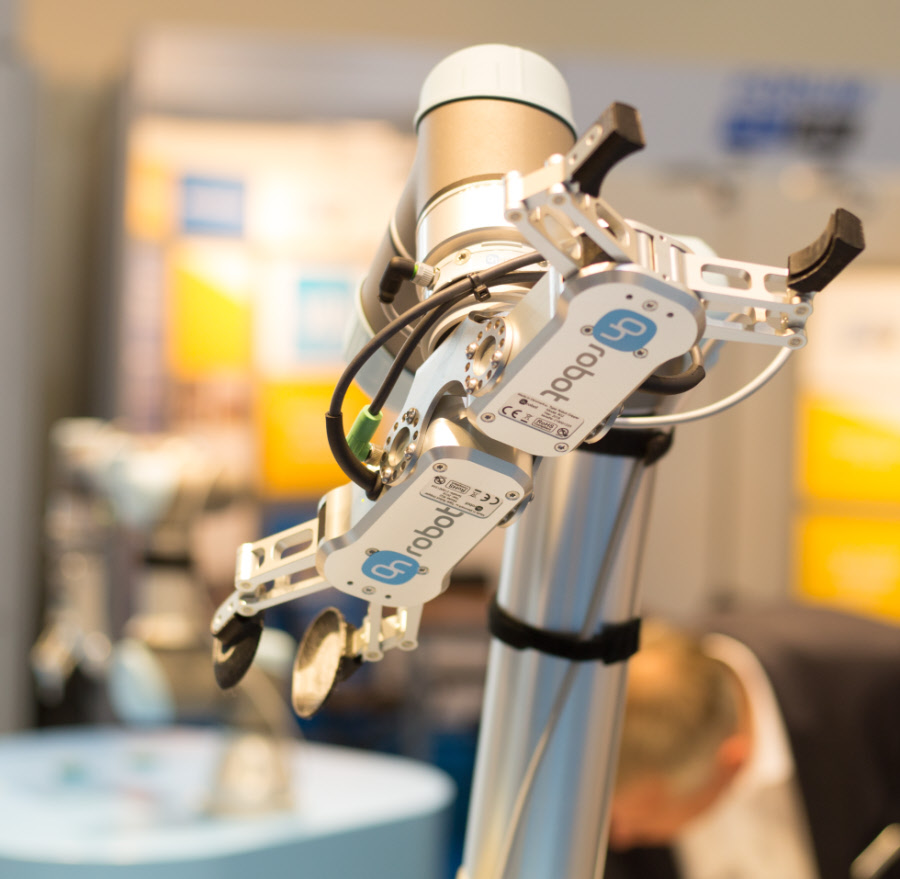 As part of her education Shermine did internship with a Danish home ware company and it was after doing sales there that she got in touch with the robotics sector – in which Denmark is world-leading as test bed and for product development and innovation.
As part of her education Shermine did internship with a Danish home ware company and it was after doing sales there that she got in touch with the robotics sector – in which Denmark is world-leading as test bed and for product development and innovation.
She joined Universal Robots in 2011 to help out with the business development as they were entering the Asian market, which was like a ticket to go back to Asia. As the business grew very quickly new career opportunities kept coming.
“I was given the opportunity to do business development in the Asia-pacific and did that for close to three years, travelling back and forth. The business kept on growing so they needed to set up a subsidiary here. The company asked if I would move back to Singapore to start up the operations and develop the team here, so we moved here in 2014.”
Proud of Danish business culture
Suddenly Shermine found herself in the seat where she represented the Danish business side. This also means that she, being Singaporean, can better share insights from both sides regarding the challenges to match two very different cultures.
“I’m very proud of it actually!” she laughs, “reason being when I first worked in Denmark I found it really difficult with the work culture because I come from an Asian culture and it’s really different. But after couple of years, and of course going through difficult times as well in learning it very quickly and adapting to it, I found it to be very good. It’s a very flat organisation, where people are able to contribute actively, e.g. we can speak our minds and if we have ideas we can push our ideas forward. It’s a very open relationship you can have with your managers and be very focused on just getting things done.”
She describes it as efficiency, productivity and results-oriented, compared to the Asian culture with too much politics, bureaucracy and hierarchy etc.
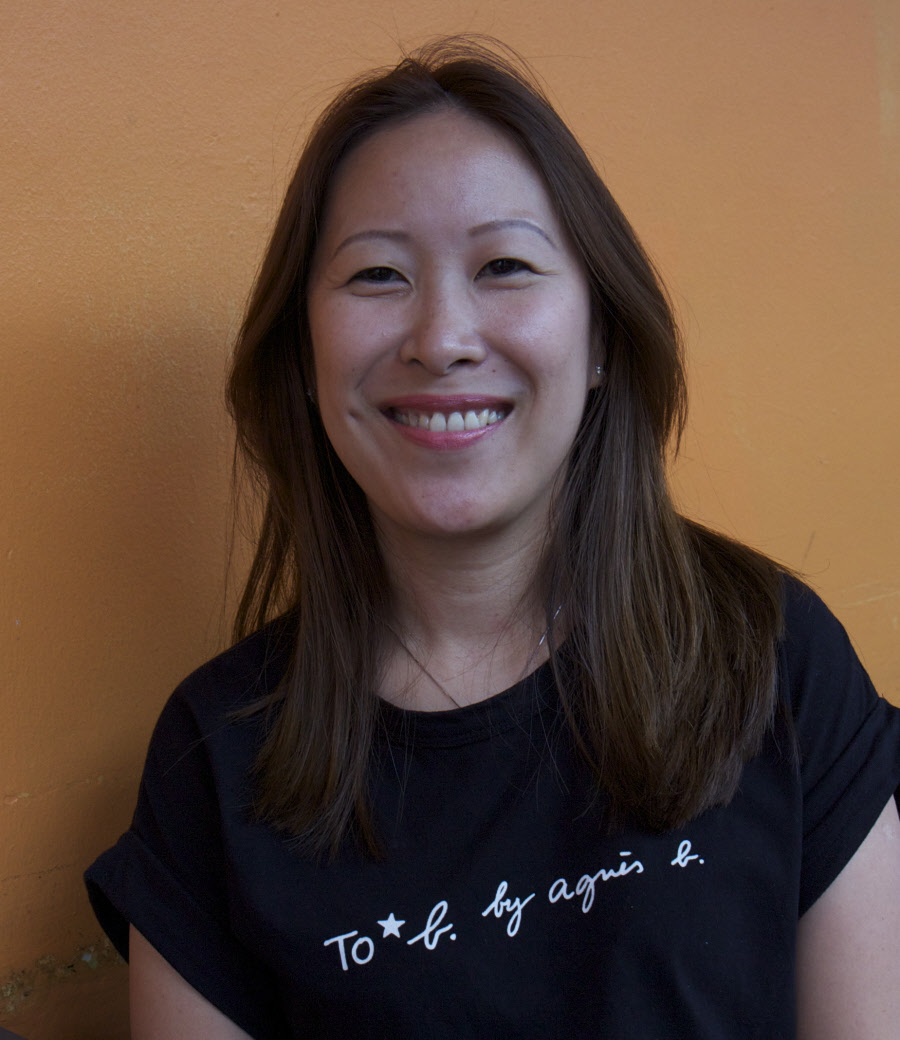 “At the same time I feel that opportunities are there if you can contribute to the company. The managers are very open to developing and supporting the team members in the Danish work culture. So I brought a lot of this into the Singapore setup of Universal Robots. The way we ran the business inside our company was very much the Danish way, with a very strong focus that we needed to localise and have that Asian culture still as part of what we had to serve our stakeholders. We had to relate to them and to our Asian team members we hired as well.”
“At the same time I feel that opportunities are there if you can contribute to the company. The managers are very open to developing and supporting the team members in the Danish work culture. So I brought a lot of this into the Singapore setup of Universal Robots. The way we ran the business inside our company was very much the Danish way, with a very strong focus that we needed to localise and have that Asian culture still as part of what we had to serve our stakeholders. We had to relate to them and to our Asian team members we hired as well.”
It was quite well received she concludes. “Initially, team members found it difficult to adapt but long-term it’s been beneficial for their career progress. They also felt really part of the team building, not just being told what to do on a daily basis. They are active contributors.”
In Asia, she believes, managers tend to tell employees what to do and do not develop them in a way that they get taught to think for themselves. Many of them can do the job, it’s just to set the expectation that it’s O.K to be active contributors and speak one’s mind.
“If we’re a Danish company we need to keep that culture, that identity, in us. But the Danish side need to understand that when they are no longer standing on Danish ground they cannot expect others to respond exactly the same – we need to move ourselves to the middle to meet there. That’s the practice I have. And it’s very important to be sensitive to the local culture. And then a lot of communication is required to make them understand why you expect certain things because they don’t know the culture. I think there is a lot of value in the Danish culture but it needs to be communicated, it needs to be fused together with the local cultures and then you’ll have a very strong partnership and success in penetrating new markets. And I guess it’s the same with any businesses going abroad.”
“It’s not as upfront or straightforward as the Danish culture here in Asia; a lot more diplomatic and about relationship-building,” she concludes.
New career opportunity in Denmark
Working for a robotics company she meanwhile feels that Singapore has been much focused on technologies development and on ensuring that the know-how is being created locally. “It is also very focused on how to help manufacturing stay competitive. There have been a lot of initiatives, R&D and monetary support to drive this. I’ve really been seeing in the past 4-5 years how much investment, time and effort Singapore is putting in; all these innovations hubs where they want to attract companies from all over the world to set up to cover this region.”
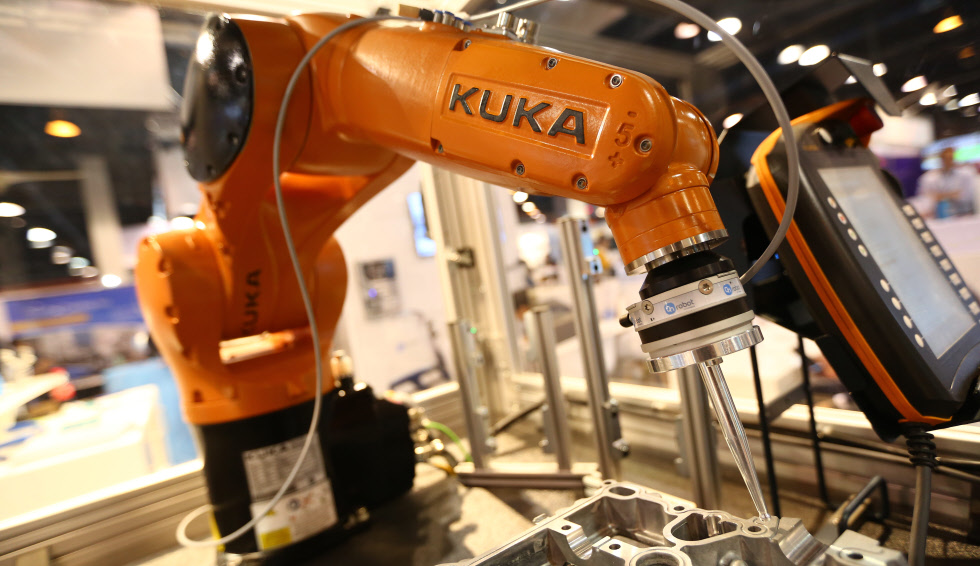
What I’m seeing is that many of the businesses setting up a company, an office, in Southeast Asia think about Singapore because of the many other reasons but also because of that there has been so much support from the government in driving this that allows them to get a good start here. That also helps the spin off to upgrade the workforce and thereby also allowing them to grow in their career development, or, rather, when new jobs are created due to technologies advancement they transit into these new jobs instead of becoming obsolete.”
Recently it was again time to move back to Denmark. When her former boss, the CEO of Universal Robots, started OnRobot A/S, a merger of three end-of-arm tooling companies to facilitate the growth of collaborative robotics and drive innovation, he asked Shermine to come on board.
“For personal reasons I had also decided that we should move back to Denmark in the very near future, and it so happened that this new opportunity came up!”
“OnRobot is basically a company that envisions being the one-stop shop for robot accessories that make it possible for manufacturers to deploy robots safely. There is a trend now that many factories will want to utilise collaborative applications in their manufacturing – that involves robots as well – but meaning to say that people can work and interact safely with the robots.“
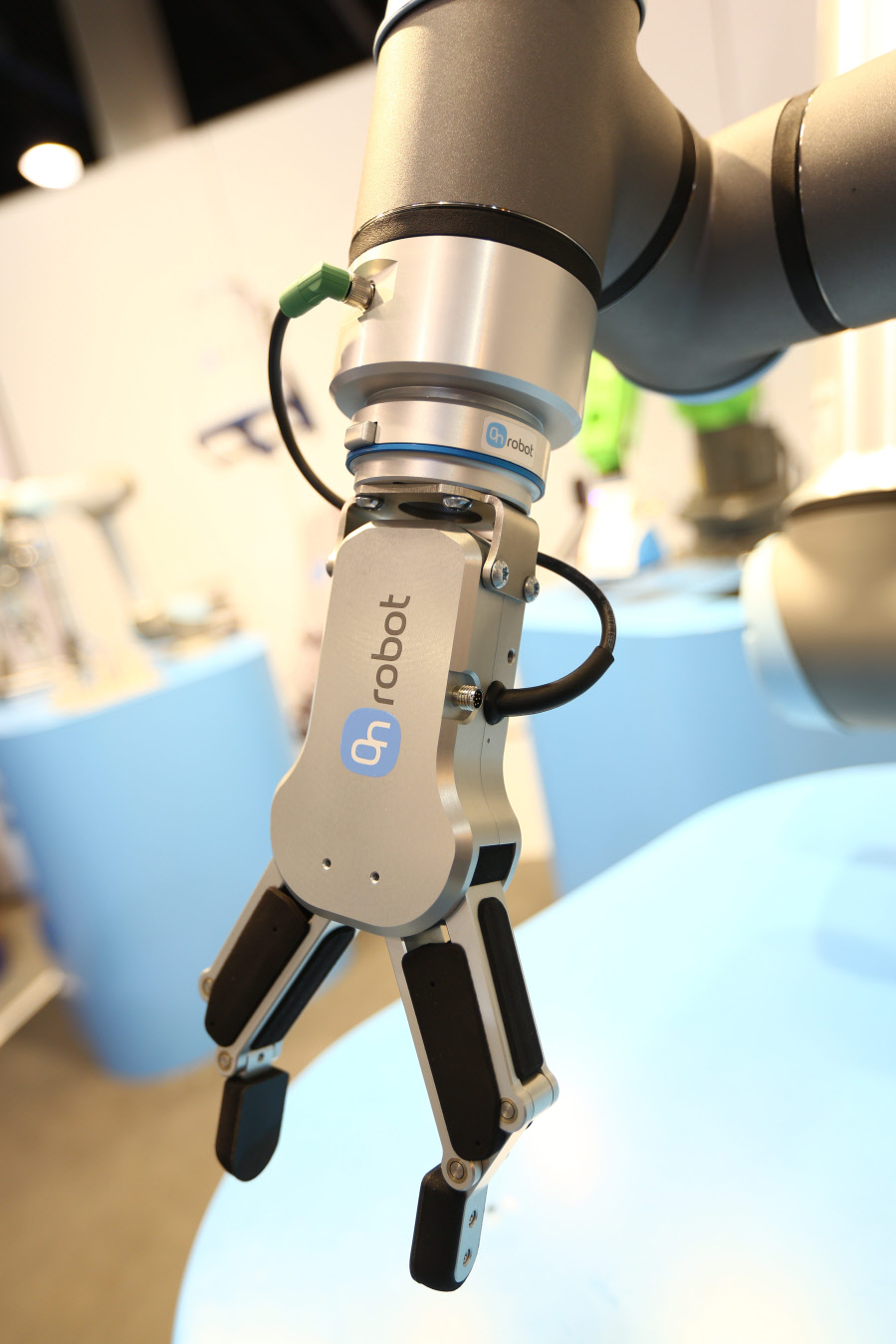 Shermine gets to develop herself in channel partner development and management, which involves distributor networks, finding the right strategy for different markets so that the products can reach the users.
Shermine gets to develop herself in channel partner development and management, which involves distributor networks, finding the right strategy for different markets so that the products can reach the users.
“Now I’m more on a strategic level working on supporting the different regions on what they need to achieve in the regions. We just incorporated a Singapore entity which is going to cover Southeast Asia, Oceania, Taiwan, India and we have also one in China, so we are slowly expanding.”
“I still have a lot of ground to cover; I have had a lot of experience out in Asia and previously some in Europe. Now it’s really a chance for me to explore more business cultures all over the world and figure out those by using the same set of skills and make the business work in there.”

